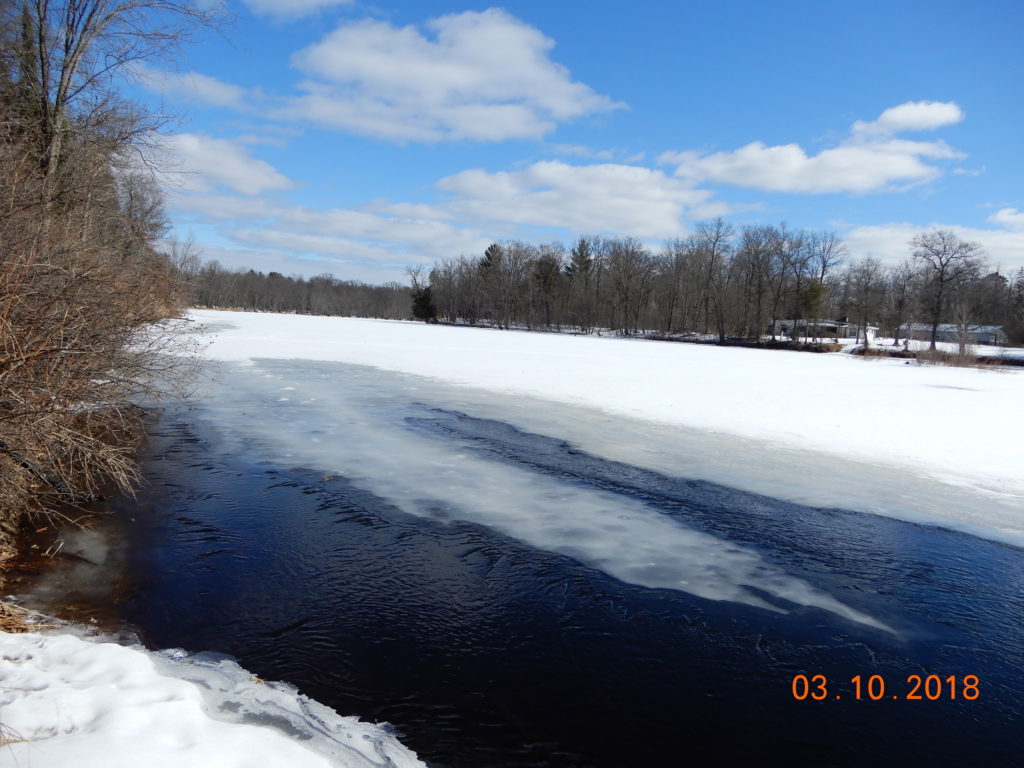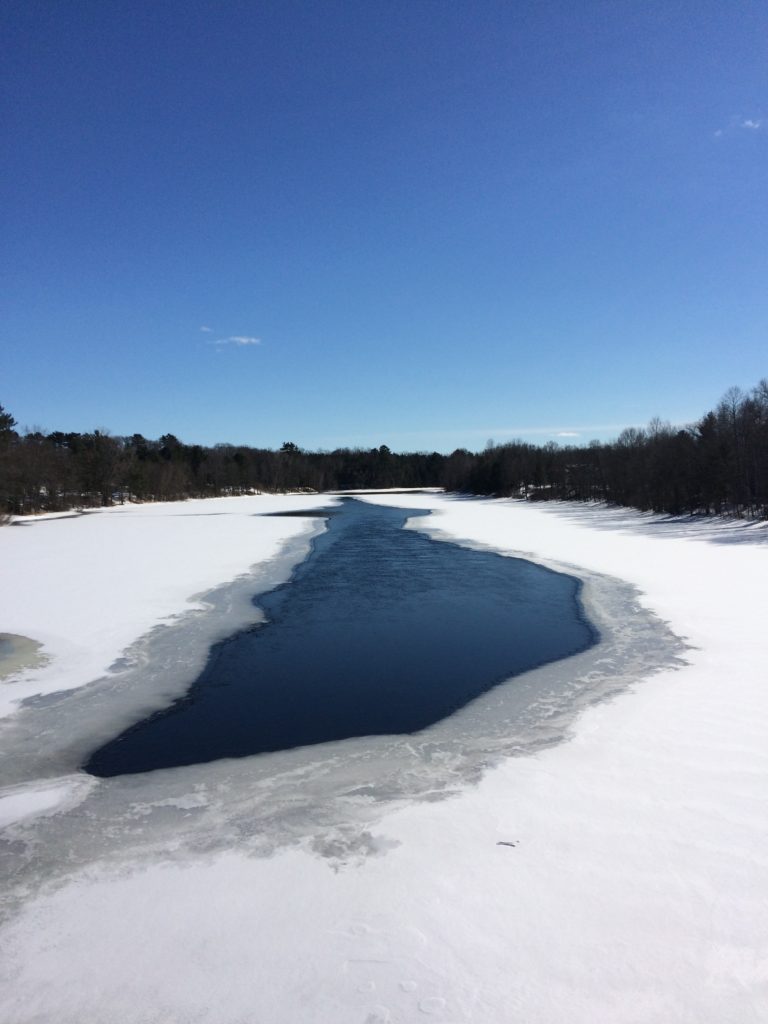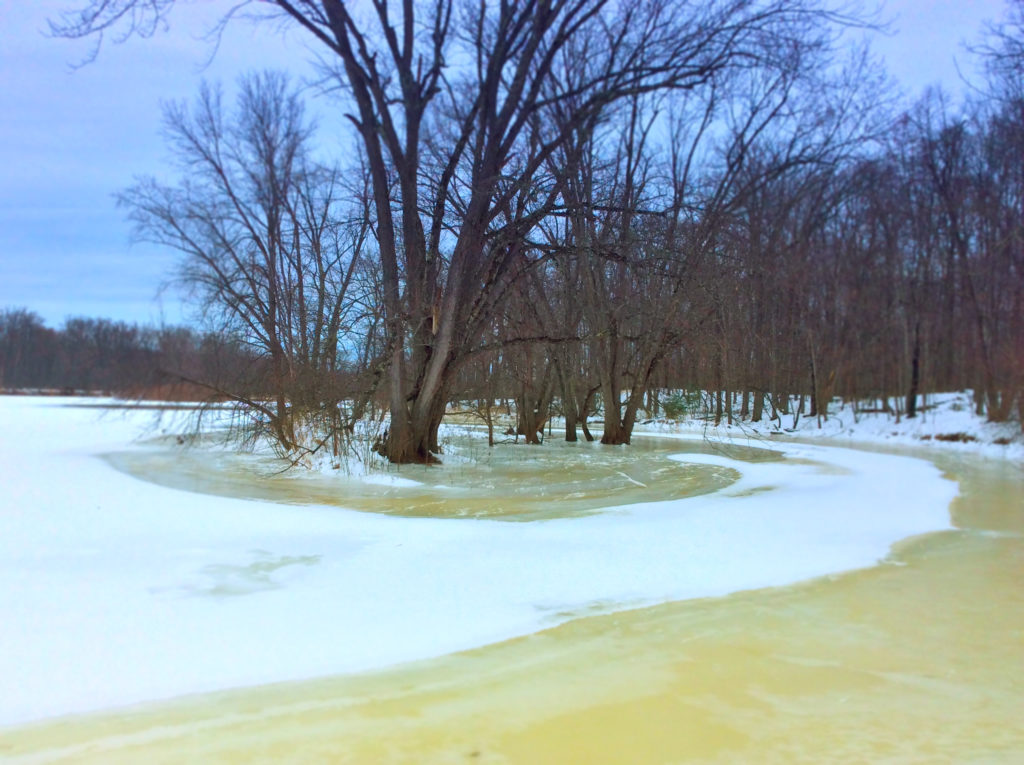STEPHENSON, MI — The Front 40 Environmental Group and the Mining Action Group (MAG) of the Upper Peninsula Environmental Coalition (UPEC), along with their regional environmental allies and fishing organizations, applaud the Environmental Protection Agency’s (EPA) significant objections to the issuance of the Aquila Back Forty Wetland Permit.
The EPA’s objections were announced in a March 8th letter to the Michigan Department of Environmental Quality (DEQ). Federal concerns are detailed in a supporting document, representing the combined comments of the EPA, the U.S. Fish and Wildlife Service (USFWS) and the U.S. Army Corps of Engineers. The EPA’s letter identifies seven primary areas of concern regarding the wetland application, and directs the DEQ to resolve those concerns within 90 days. If not resolved in that time, DEQ is directed to deny the permit for the mine.
EPA’s objections include:
- Aquila’s failure to provide a complete description of the project, including a final site plan showing the final location of key features of the project, a proposed power plant, planned underground mining facilities, and stormwater and mining water management facilities.
- Lack of relevant information on the stability and integrity of the mine pit to be located on a bluff above the Menominee River, including an analysis of slope stability and erosion of the river bank.
- The application “states that the project will not adversely affect water quality of the Menominee River but does not explain how the project will be managed to ensure discharges will meet water quality standards, including sufficient monitoring locations, minimization measures, and adaptive management procedures to prevent leaching of toxic compounds from mine storage facilities and from the mine pit into the River.”
- Aquila’s failure to adequately characterize secondary impacts to wetlands and “lacks information regarding the extent of wetlands that will be impacted by the project and how these wetlands will be affected by the proposed project’s Menominee River drawdown of some 125,000 gallons per day.”
Critically, the EPA found that Aquila failed to provide adequate support for their determination that “offsite upland alternatives for some mine features (e.g., tailings storage) are not practicable”, and that they did not provide “needed information to determine whether some 500 acres of wetlands and uplands that were selected for preservation meet statutory requirements to be used as wetland and stream mitigation.”
Unless Aquila Resources satisfactorily resolves all of the EPA’s objections within 90 days, the DEQ cannot issue a Wetlands Permit for the Back Forty Project.
The Michigan DEQ continues their review of the Aquila Back Forty Wetland application, recently sending a letter to the company asking them to respond to more than 34 pages of detailed public comments, selected and synthesized from approximately 3,420 total written comments received on the Wetland application by the DEQ’s Water Resources Division. Aquila was asked to respond by March 23rd. http://bit.ly/DEQ-to-Aquila-PublicComments
“We are thrilled to see EPA leading the charge to protect Michigan’s world-class waters and habitat from the potentially devastating impacts of the Aquila mine development,” stated Cheryl Kallio, Associate Director for Freshwater Future. “We are proud to support the efforts of groups like Front 40 and UPEC Mining Action Group, who are leading the charge to evaluate this complex permit application, helping ensure decision makers within these federal agencies have the facts they need to do their job protecting Michigan’s wetlands.”

“The Aquila Back Forty property, as viewed from Wisconsin side of the Menominee River. A large open pit sulfide mine is proposed for this site.” March 10, 2018. Photo by Deborah Skubal.
“We’ve opposed the Back Forty project since 2003. Fifteen years later, we still object. We are fighting to protect the Menominee River from this disaster-waiting-to-happen. We are encouraged by EPA’s objections to the Wetland permit, and we expect to see this dangerous permit denied,” said Ron Henriksen, spokesperson for the Front 40 Environmental Fight.
According to a statement released by Great Lakes Council of Fly Fishers International President Dennis O’Brien and Conservation Chair Dave Peterson, “The Great Lakes Council is pleased that the U.S Environmental Protection Agency recognizes the significant deficiencies in the Aquila application. This mine poses a threat to the health of the Menominee River and its fishery. The Council is pleased to support the wetlands analysis submitted as part of the permit review process.”
If fully permitted, the Back Forty would be a large open-pit sulfide mine on the bank of the Menominee River, the largest watershed in the Upper Peninsula of Michigan, 100 feet from the water. Aquila proposes to process ore on-site, using cyanide and other chemicals. Tailings waste will be stored permanently at the site. Geochemical testing shows that most of the rock is “reactive” or capable of producing acid mine drainage (AMD) when exposed to air and water. AMD devastates watersheds. It is difficult and expensive to remediate, and may continue leaching from the tailings into surface and groundwater for hundreds or thousands of years.
Under Michigan regulations, Aquila bears the burden of demonstrating that either (a) the proposed activity is primarily dependent upon being located in the wetland, or (b) there are no feasible and prudent alternatives, and must use all practical means to minimize impacts to wetlands. An independent review of the Wetland permit by Dr. Kendra Zamzow of the Center for Science in Public Participation concludes, “The mining permit and wetland permit are inextricably linked.” The Wetland Permit application, however, relies upon a facilities design for the mine site which is significantly different from the design presented in the Mining Permit Application, and “pose risks to wetlands that have not been analyzed.”
“Aquila seems to present different information depending on its audience. It applied for permits for an open pit mine operation of 7 years, while telling investors that the project will include underground mining and operate for 16 years. Our review found that Aquila collected inadequate data on groundwater flow and used textbook values, off-site data, and estimated values for certain parameters in its groundwater models. Based on flawed and inaccurate models, Aquila makes the ridiculous claim that this mine will have ‘NO IMPACTS’ on wetlands just outside the project boundary, the adjacent Ecological Reference Area, and wetlands that straddle the property line,” said MAG member Steve Garske.
“We are encouraged by the diligent approach to qualifying and quantifying the serious issues involved with the Aquila application. The combined comments of the EPA, USFWS, and the Army Corps of Engineers mirror many of our own concerns about this mining company’s plans. As fisher folks and as individuals, we are working to protect water quality for our safe enjoyment of the Menominee waterway – and Lake Michigan. The affected parties are justifiably anxious about the significant environmental impacts effects of the Back Forty mine. We urge environmental regulators to be extremely wary in dealing with Aquila. We hope the entire wetland application gets turned down – flatly,” said Jerry Pasdo, president of the Wisconsin Smallmouth Alliance.
“The Back 40 proposal poses serious risks to drinking and surface water in the region and therefore requires thorough scrutiny. We are especially concerned about impacts to the ancient sturgeon population in the Menominee River and Lake Michigan that many partners have invested in restoring over the last few years,” said Allison Werner of the River Alliance of Wisconsin.
“EPA’s objections align with our concerns. The Wetland permit application is shoddy, full of untested assumptions about wetland hydrology. The whole scheme hinges on a facility design for the Back Forty mine that no one has reviewed, much less approved,” said Kathleen Heideman, a member of MAG.
Front 40 and the Mining Action Group of the Upper Peninsula Environmental Coalition expect that the Aquila Back Forty Wetland Permit application, after thorough examination by federal and state regulators, must ultimately be denied.
“Aquila seeks to destroy almost thirty acres of wetlands in order to build a sulfide mine on the bank of the Menominee River. Their permit application is clearly unlawful. This is an alarming proposal, given the proximity of wetlands to the river. The total wetland impacts are underestimated due to flawed groundwater modeling, and additional years of underground mining which would expand the drawdown, with devastating effects on the surrounding ecosystem,” said Heideman.
A diverse coalition of fishing groups, residents, tribal members and environmental groups are united in their opposition to the Aquila Back Forty project. Downstream communities are worried about potential impacts to drinking water and tourism, and have passed nearly two dozen resolutions against the project. “The Menominee is a valuable resource that shouldn’t be damaged or destroyed, which is why I’m working hard to protect it from the proposed Back Forty mine. I don’t want to lose the river to a polluting – sulfide mine,” said Dick Dragiewicz, an avid fisherman.

“Open water on the Menominee River, near the proposed Aquila Back Forty sulfide mine.” Photo by Lea Jane Dale, Coalition to Save the Menominee River.
Fundamental objections to the Aquila Back Forty project remain unresolved. While the Wetlands permit has been under review, two contested case petitions have been filed: one by an adjacent landowner, and another by the Menominee Indian Tribe of Wisconsin, supported by Earthjustice.
“Wetlands are strictly protected under both state and federal law. Before wetlands can be destroyed, Aquila needs to demonstrate that impacts are unavoidable. They failed that test. This permit cannot pass muster with environmental regulators,” said Heideman.
“I was amazed by the EPA’s strong letter in defense of wetlands. Aquila’s mine threatens the cultural and natural resources of the Menominee people, and a globally unique habitat known as the Shakey Lakes Savanna. The Menominee River is the worst possible place for an open-pit sulfide mine. Aquila’s plan for on-site milling is especially dangerous, and would needlessly destroy wetlands. Issuing the Back Forty Wetland Permit would violate the Clean Water Act,” said Horst Schmidt, president of the Upper Peninsula Environmental Coalition.
SUPPORT
Independent review of the Aquila Back Forty Wetland permit was made possible by the generous support of groups and individuals concerned about the future health of the Menominee River. Working collaboratively, the Mining Action Group of the Upper Peninsula Environmental Coalition and the Front 40 secured grants and donations from Freshwater Future, Superior Watershed Partnership, the Western Mining Action Network, DuPage Rivers Fly Tyers (DRiFT), Northern Illinois Fly Tyers (NIFT), Badger Fly Fishers, M&M Great Lakes Sport Fisherman, Wisconsin Smallmouth Alliance, Fly Fishers International, Great Lakes Council of Fly Fishers International, the Emerick Family Fund, and from many individual fishing enthusiasts throughout the Great Lakes area.

“Sixty Islands section of the Menominee River, riparian wetlands located approximately 200 feet from the proposed Project Boundary. Aquila Back Forty Mine site, January 9, 2018.” Photo by Kathleen Heideman, Mining Action Group.
DOWNLOAD FILES
- 2NN-5PE0-MT3W Public Comment Letter to Applicant (DEQ to Aquila)
http://bit.ly/DEQ-to-Aquila-PublicComments - Aquila Back Forty EPA review letter 030818.pdf (EPA to DEQ)
http://bit.ly/EPAobjects-Back40 - Aquila Back Forty EPA review enclosure 030818.pdf (EPA to DEQ)
http://bit.ly/EPAcomments-Back40
Mission of the Upper Peninsula Environmental Coalition
Founded in 1976, the Upper Peninsula Environmental Coalition’s purpose remains unchanged: to protect and maintain the unique environmental qualities of the Upper Peninsula of Michigan by educating the public and acting as a watchdog to industry and government. UPEC is a nonprofit, registered 501(c)(3) organization. For more information, call 906-201-1949, see UPenvironment.org, or contact: upec@upenvironment.org.
Mission of the Mining Action Group
The UPEC Mining Action Group (MAG), formerly known as Save the Wild U.P., is a grassroots effort to defend the clean water and wild places of Michigan’s Upper Peninsula from the dangers of sulfide mining. Contact the Mining Action Group at info@savethewildup.org or call (906) 662-9987. Learn more about the Mining Action Group at miningactiongroup.org.
Mission of the Front 40 Environmental Fight
The Front 40 is a grassroots organization that was formed in early 2003 in response to the threat of a metallic mineral mine potentially being developed on the shores of the Menominee River in Lake Township, Michigan. It is the principal objective of the Front 40 Environmental Group to ensure that metallic sulfide mining operations are not allowed to adversely impact our rivers, lakes, groundwater and lands. Learn more about the Front 40 group: menomineeriver.com